The World’s Biggest Kratom Exporters
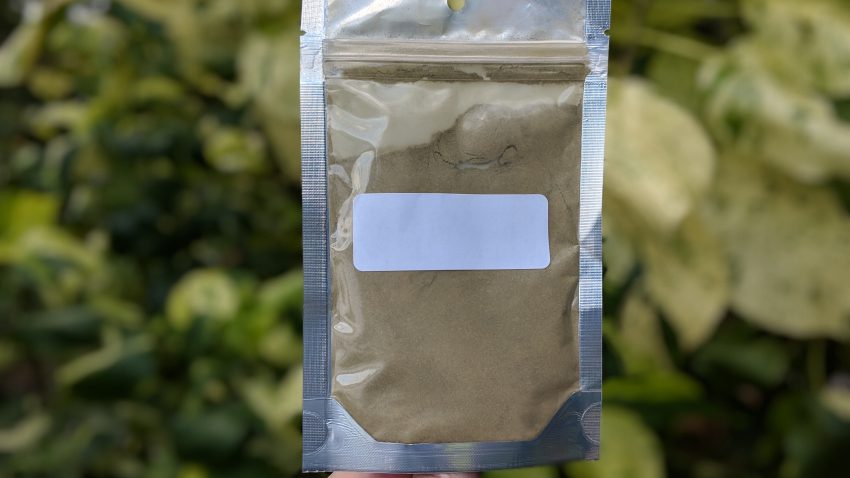
The World’s Biggest Kratom Exporters
 We’ve delved into how kratom is made –– but where does it come from?
We’ve delved into how kratom is made –– but where does it come from?
Although kratom can be grown outside of its indigenous home of Southeast Asia, the vast majority of the supply circulating within the US and elsewhere is imported from Southeast Asian countries.
Indonesia is perhaps home to the highest volume of mitragyna speciosa powder production and exportation. Unlike other Southeast Asian countries, kratom has not been deemed an illicit substance within Indonesian borders, which has popularized kratom farming efforts. A significant amount of kratom is sourced from Indonesian provinces such as West Kalimantan on the island of Borneo.
Supposedly, farmers located in other neighboring regions such as Malaysia and even Thailand also play a role in how kratom is made, although kratom is a controlled substance in both countries. In Thailand, kratom was deemed illegal to buy, sell, import, or possess in 1979. However, despite regulation efforts, kratom has maintained its popularity and remains Thailand’s most widely consumed substance.
The Roots of Kratom
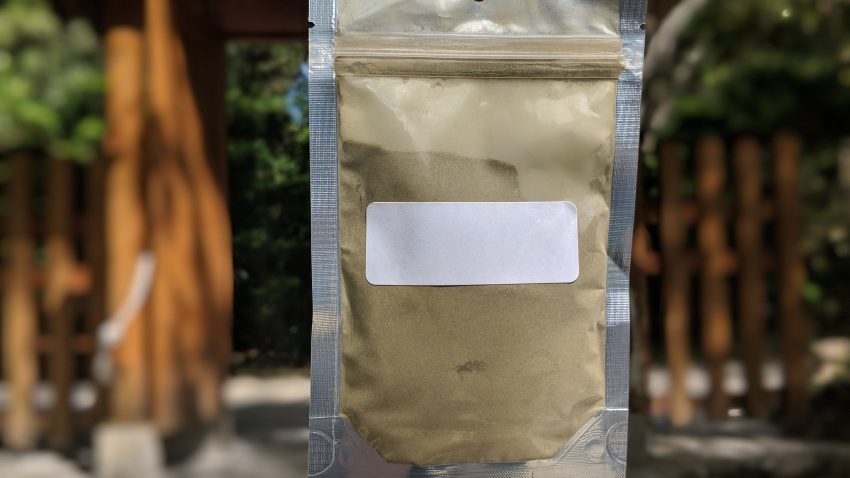
The Roots of Kratom
Mitragyna speciosa powder begins with the mitragyna speciosa tree, a plant native to Southeast Asian countries including Indonesia, Thailand, and Malaysia. Indigenous populations in these areas have been growing and harvesting kratom for centuries, and the earliest reports of kratom consumption in Malaysia date back as far as 1836 according to Burkill.
The plant’s environment is a significant factor in how kratom is made. At maturity, the mitragyna speciosa tree can grow as tall as 80 feet in ideal conditions. Its leaves have a shiny, dark green coloration and are quite large, with most full-grown leaves dwarfing the size of an average human hand. Because the kratom plant is evergreen, its leaves quickly regrow when shed, making kratom production possible year-round.
Kratom grows best in warm, humid environments where sunlight is plentiful. As such, the plant is abundant in rain forested areas such as the tropical island of Borneo.
Kratom Post-harvest Production – Blog
Kratom Post-harvest Production
Kratom Post-harvest Production – Once the leaves of the kratom plant have reached an ideal maturity, they’re picked or collected in large quantities. The freshness of the leaves plays a vital role in how kratom is made, as it alters the phytochemical concentrations that are responsible for the plant’s characteristics. For instance, red kratom strains typically consist of mature leaves, while white and green kratom strains are generally produced using younger leaves.
To create kratom powder, the leaves of the mitragyna speciosa plant undergo a drying phase in the sun or the shade. Different powders can be produced depending on the length and specifications of this drying or “curing” process. Once the leaves have been dried, they’re subsequently shredded or ground into a fine consistency. Later, an industrial grinder is used to produce an even finer mitragyna speciosa powder with the texture of flour – a fundamental step in the process of how kratom is made. Although kratom is typically dried in the sun using large-sized racks, some kratom farmers rely on additional production and processing methods to create specialty kratom strains that are often popular with online buyers.
Mitragyna Hirsuta – Fresh Leaf
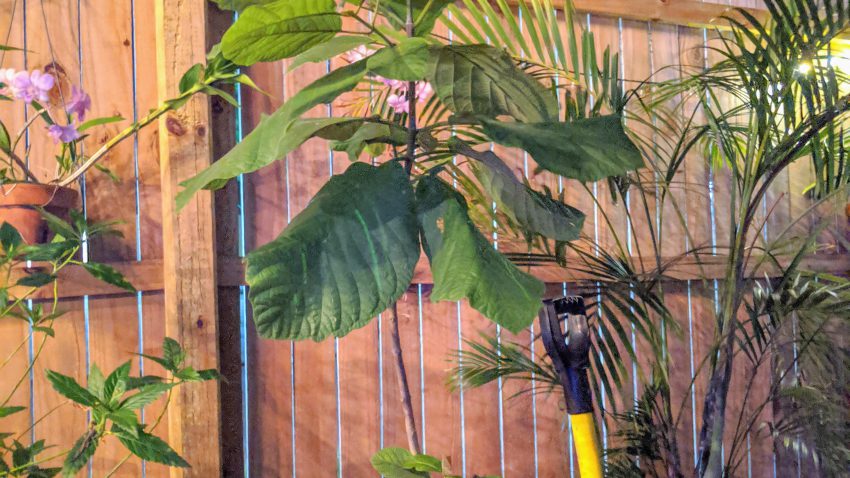
Mitragyna Hirsuta – Fresh Leaf
Each fresh Mitragyna Hirsuta leaf is equal to around .8 or 1.2g of dried leaf. Each leaf is picked to ship, for freshness we recommend you select 2-day shipping. Your leaf will keep for around eight days in the fridge or 3 – 4 days at room temperature in a sealed bag. It can be air-dried to preserve the leaf at which point it can be stored like your typical Kratom leaf or powder.
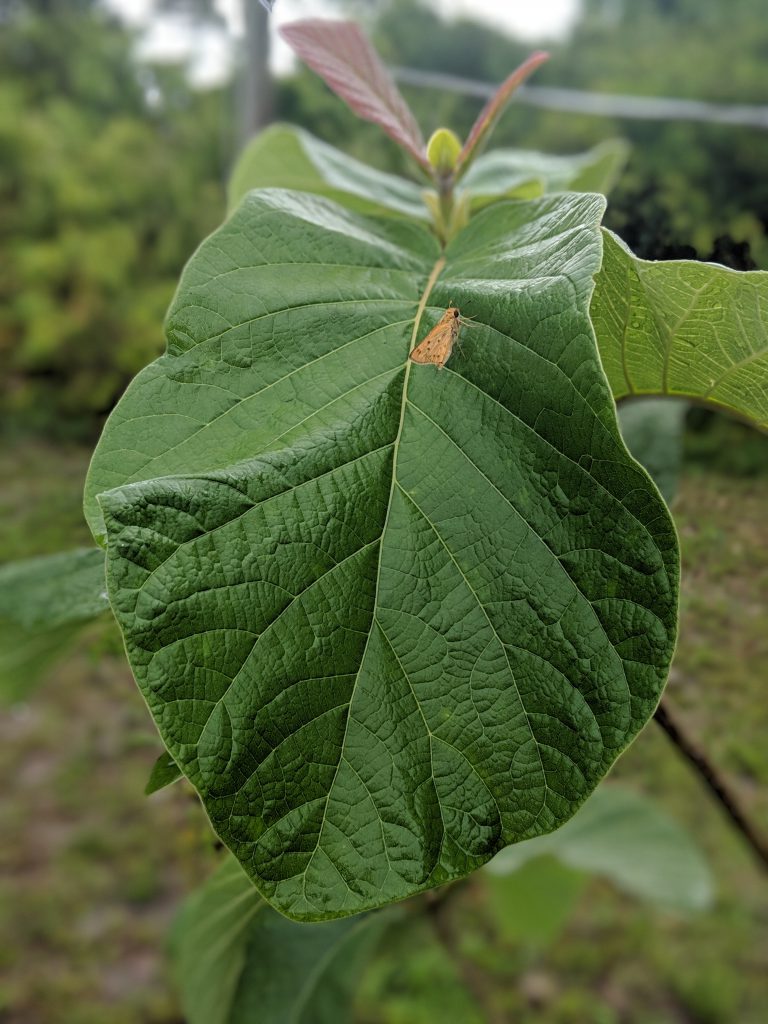
What is Mitragyna Hirsuta?
Mitragyna Hirsuta comes from the same genus and family as Mitragyna Speciosa (Kratom plant). It is a popular kratom alternative because it shares similar properties. The leaves are green with a lighter green white vein that runs through them. They tend to be smaller than Mitragyna Speciosa leaves, and have a street name of “kra thum khok”.
The Mitragyna Hirsuta plant is native to the jungles of Thailand, Vietnam, Cambodia, and Malaysia. Kratom became illegal in 1943 in Thailand and Mitragyna Hirsuta became very popular in this area as an alternative.
Just like kratom, traditional forms of use included chewing the leaf. This was widely done throughout the Southeast Asia culture and is not a prevalent form in the Western World because the plants do not naturally grow here and it is hard to gain access to the actual leaves. They are typically crushed into a powder and sold on the market.
Mitragyna hirsuta powder is a very popular alternative to the kratom plant. It is not offered in a lot of local stores but can be sourced through an online vendor.
Mitragyna Hirsuta vs Kratom
M Speciosa (kratom) has a robust alkaloid content. The high concentrations of mitragynine are what make kratom well known. These alkaloids are known to work with the receptors in the brain. M Hirsuta on the other hand does not contain mitragynine or the other active indole alkaloid that makes kratom well-known, 7-hydroxymitragynine.
Mitragyna Hirsuta is rich in a different alkaloid known as mitraphylline. However, the overall mechanism of this alkaloid is the same as kratom. There is not a lot of scientific research surrounding either herb, which only provides anecdotal experiences to be searched.
What are Mitragyna Hirsuta’s Key Alkaloids
We did touch on this above but let’s take a deeper look at the indole alkaloid profile for Mitragyna Hirsuta. This ancient herb, just like kratom, is known for its key alkaloids and the overall balance that they offer.
However, the two key alkaloids in kratom which tend to be ban by many areas across the globe are Mitragynine and 7-hydroxymitragynine. Both of these alkaloids are not present in Mitragyna Hirsuta, which makes this herb much more accessible in the United States.
M Hirsuta contains mitraphylline, which binds to the same mu-opioid receptors in the brain as mitragynine. This alkaloid is also present in kratom and Cat’s Claw (Uncaria Tomentosa). Another alkaloid that was recently discovered in Mitragyna Hirsuta is Isomitraphyllinol.
What are Mitragyna Hirsuta’s Key Alkaloids
The alkaloids in Mitragyna hirsuta are the active compounds that give the herb its effects. Fortunately, Mitragyna hirsuta is free of two of the top “controlled” substances present in kratom: Mitragynine and 7-hydroxymitragynine. This makes the herb much more accessible to consumers in the Western world.
Instead, this herb contains an alkaloid called mitraphylline that binds to the same mu-opioid receptors in the brain as mitragynine and is also present in kratom (Mitragyna speciosa) and cat’s claw (Uncaria tomentosa). Another oxindole alkaloid in the herb has been discovered recently that is called isomitraphyllinol, although the effects of this alkaloid are not currently understood and require further study.
Another successful kratom tree pickup! 7/29/2021
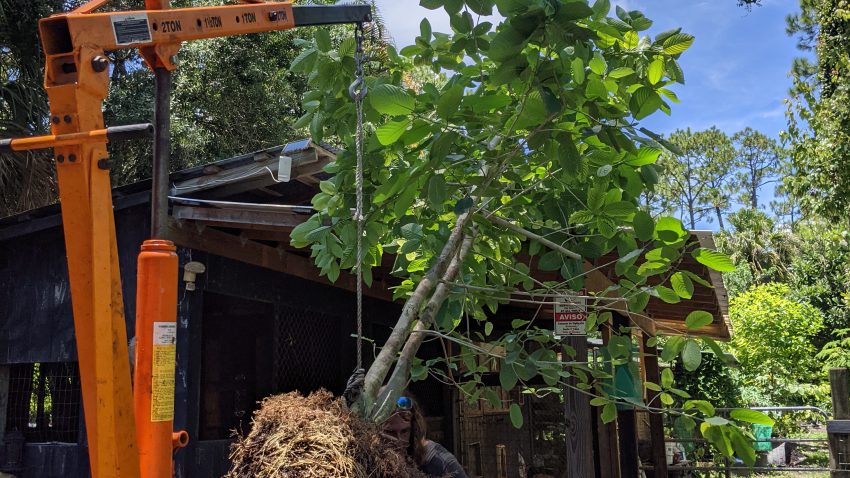
Another successful kratom tree pickup! 7/29/2021
I was told this tree was about 2 years old but I am highly skeptical only because it looks more like a 5 year old tree. Although it is possible. Martha was the previous owner of these trees and she said that she bought them from My trees of life. Thankfully Josh helped us out with his truck and engine lift. Without the engine lift we would not have gotten it into the tuck. The tree ripped apart both our my shoes and will have to be replaced. took us from 10 am to 4 pm to get it moved and planted at the kratom nursery. You can see I tried my best to move it before but it was way to heavy. There are 2 other trees I need to pick up
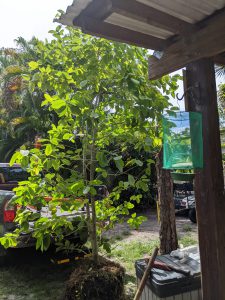
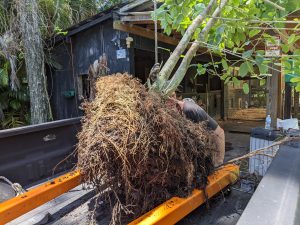
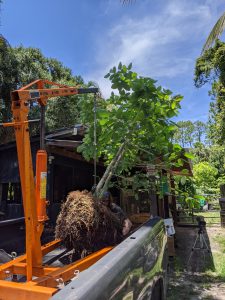
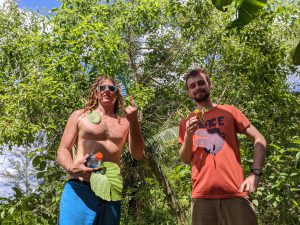
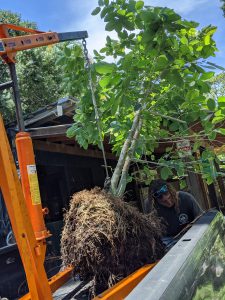
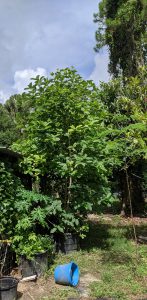
Kratom Seed Pod Documentation
Kratom Seed Pod Documentation
Fresh ripe Kratom seed pods are taken from 6 – 11 year old kratom trees organically grown in North America. As growers, we have acclimated these magnificent kratom trees to the gulf region of the United States. Growing instructions and support are included for those in all environments. As a reference tool to show as it shows the different parts of the seed pods. Here is a link to our American kratom seed pod dissection.
How many seeds come with my order?
There are hundreds to thousands of kratom seeds per individual kratom seed pod. This is a important distinction as many new growers are confused and assume the entire pod is one seed. As a reference tool to show as it shows the different parts of kratom seed. Here is a link to our American kratom seed pod dissection.
How viable are the kratom seed pods?
Just like any other seed pod with a high number of seeds included in its pods. Kratom seed has a smaller viability rate. This is due to how the trees are grown in nature and the trees genetics. The idea is that more seed the more possible plants. Our seed pods get around 15 sprouts per 1/4 of a single seed pod at their most viable state.
How to sprout Seed Pods! And answering commonly asked questions!
If this is your first time growing from seed pods our team recommends you spend a few minuets to watch this educational video. These seed pods were planted in March 2019 – June 2019 kept outdoors in very hot and humid conditions while being covered in clear plastic wrap.
How do you collect Kratom Seed Pods?
Kratrom trees take many years to mature. Because of this they can be quite tall making them hard to reach and pick seed pods directly off a tree. A single kratom tree can grow to over two hundred feet tall. This particular tree below is 25 ft tall. It wasn’t to quick before using a ladder alone would not be enough. We then cut the seed pods directly off the tree.
Our dedicated team have had to make choices on the most efficient and effective way to bring them down. A big factor that plays out over time is how we grow the trees. If we top our taller trees they will start to bush out more near the bottom. A good portion of the seed pod development happens at the top of a tree. We have built a Kratom Seed Pod collector as a solution. This collector is built our of PVC with a comb attached to the end. The pods then fall down to our collection bin at the end of the tubing.
How are kratom seed pod fertilized?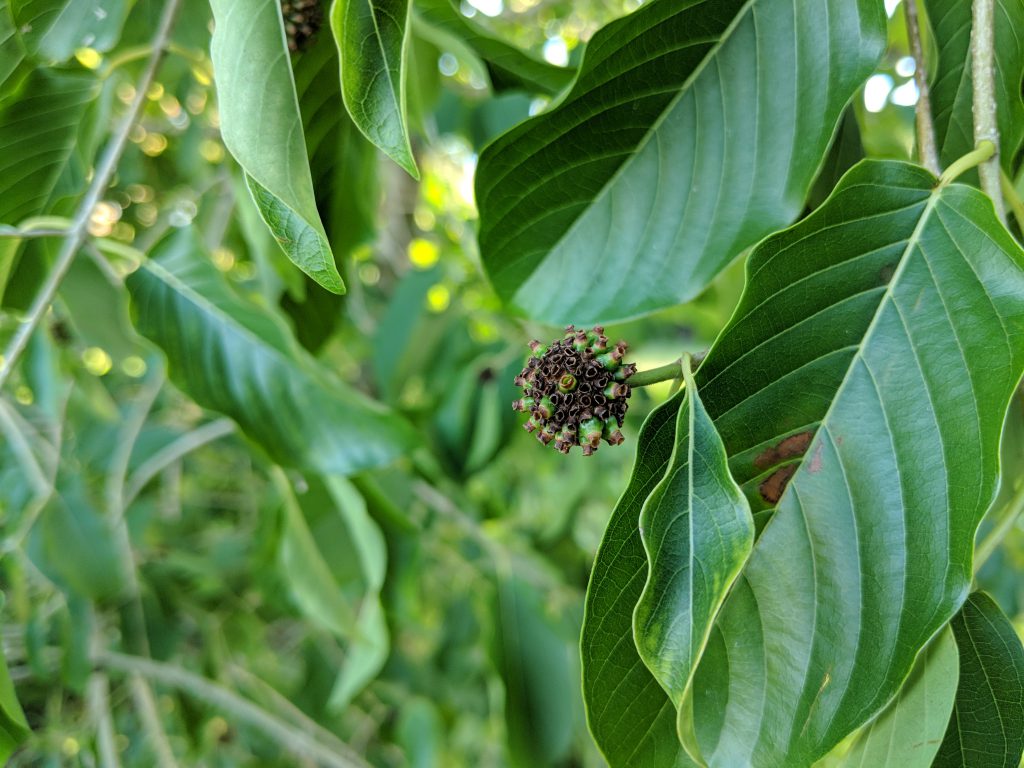
Kratom seed pods from the nursery are confirmed to have at least 60% fertilization. One can assess this by the projections (pods) erupting from the circular flower bulb. These continue to grow until they are mature. Once kratom seed pods are ready to release seed, the seed pod husk bursts open. Kratom seed are quite small and light. The seed will blow all over out of the kratom trees that start to grow once they are one the ground and the ground is moist.
Bees and other insects are attracted to the pungent sweet smell of the kratom seed pods as they develop on the kratom trees. For that reason bees rub themselves on the stems of the exposed seed pods as they travel around the seed pod collecting the pollen in their fur as they go. While they travel from kratom tree to kratom tree the collected pollen rubs off onto the other seed pods that the bees land on. As a result this fertilizes the kratom seed pods.
Are you able to hand fertilize seed pods?
On the other hand, each seed pods is to hand fertilize by staff. As well, a staff member will climb up on the ladder and grab what ever seed pods are close and rub them against each other. Turning them and spinning them in our hands to get the maximum effect. This ensures the viability of the seed pod.
Organic American Kratom Leaf is available here for purchase.
How To Tell A Fertile Kratom Seed Pod?
Each seed pod have very distinct difference between a fertile seed pod and a inftertile pod. Fertile kratom seed pods will be plump in contrast to infertile pod that are smooth and round. For that reason, make sure to be careful if you want a full pod to stay intact as they break apart from the center very easily. Most notably, this video shows every stage of a kratom seed pod.
What do infertile kratom seed pods look like?
Lastly, a infertile seed pods are completely round and are very very tiny. They will almost look like a honeycomb in a ball. Infertile kratom seed pods are very soft and will roll around in the hand. In contrast, there is not much that can be done with these pods. Here is a short video to show you what they look like.
How do I sow kratom seed pods? What soil should I use?
Thankfully, kratom do not require any particular type of soil to grow. Your average potting soil will be fine. When you go to lay your seed, crush up the seed pods in your hand. The seed will break away easily. Sprinkle the seed on your container.
Other good posts
https://kratomwatchdog.com/topic/4509/pollinators
Customer review or kratomleaf.us!
Failing to move a kratom tree
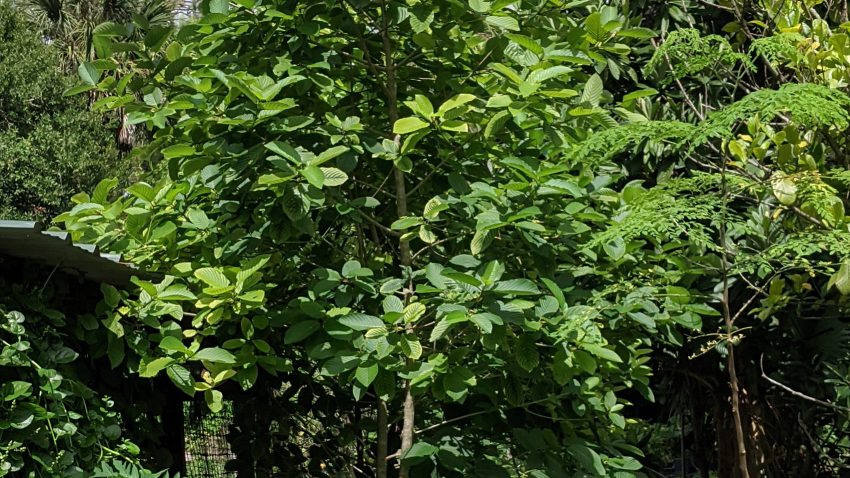
Failing to move a kratom tree
Failing to move a kratom tree. This tree was extremely heavy. You can see Walter had a tough time moving it. We did end up getting it moved here.
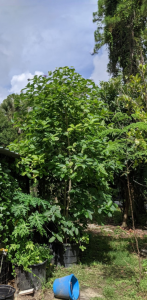
Another successful kratom tree pickup! 7/29/2021
I was told this tree was about 2 years old but I am highly skeptical only because it looks more like a 5 year old tree. Although it is possible. Martha was the previous owner of these trees and she said that she bought them from My trees of life. Thankfully Josh helped us out with his truck and engine lift. Without the engine lift we would not have gotten it into the tuck. The tree ripped apart both our my shoes and will have to be replaced. took us from 10 am to 4 pm to get it moved and planted at the kratom nursery. You can see I tried my best to move it before but it was way to heavy. There are 2 other trees I need to pick up






Failed kratom tree pick up
Failed kratom tree pick up
I tried picking up this kratom tree today but I physically could not get it off the ground. Not even a inch. Anyone have any suggestions on how it could be moved?

Rooted Kratom Cutting Documentation
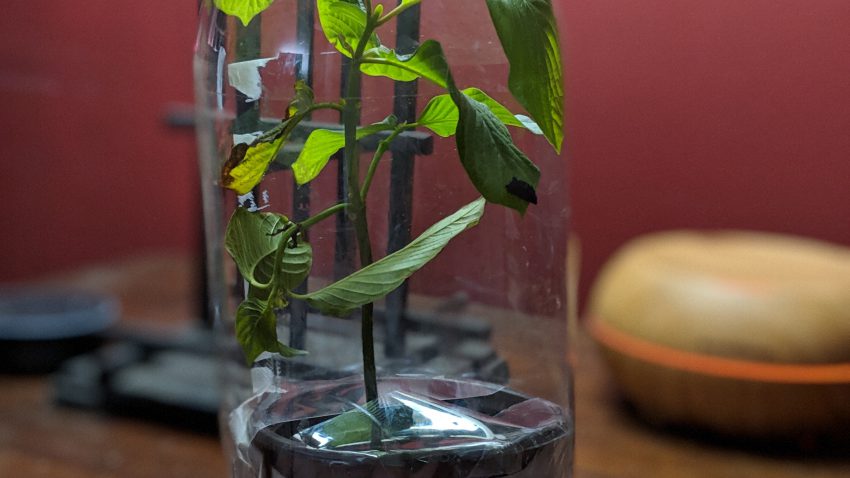
Rooted Kratom Cutting
Our lush cuttings come from our American nursery. We treat all of our tea cuttings with the love and care they deserve. Our cuttings come from fully established fully mature 5 – 11 year old trees. You can try the leaf from the trees your very cutting came from right now.
Some things to mention about a Kratom Cutting
Something to keep in mind is it is important to not grow these plants like other types of plants. For example these are not tomatoes and will not thrive in the same conditions tomatoes grow in. These Kratom cuttings are rain forest trees. Kratom trees require high heat, high humidity, and lots of water. Please do your research and ask questions. A great resource to use is our #kratomAPP KratomWatchDog.
Here is a fertilizing recommendation write up one of our customers posted on kratomwatchdog.
How long does it take for a kratom cutting to mature?
A Kratom cutting can take any about 5 years to mature. Although current research has been showing that kratom trees actually start to produce mitragynan when they are little cuttings just the amount of mytragynan is so low that is noticeable.
Kratom Vein Colors
The color of a kratom vein are determined by the content of mytrogynan (alkaloids) in the vein. The purpose of producing mytrogynan is to protect the tree from insects and animals from eating the leaf. Its also a stress mechanism. The mytrogynan is why the leaf is so bitter and correlates to strength. Strength also correlates to how mature the leaf is. The more mature the leaf the stronger it will be. When mature leaves mature the alkaloids are sucked back into the tree thru the veins. These leaves will look more yellow. The Kratom Bible is also available here on the #kratomAPP
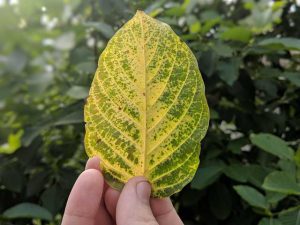
The more alkaloids in the vein. The more red the vein will be. Purple at the high end of alkaloids. White at the low end of alkaloids. It is possible to see all vein colors grow at the same time on the same tree. (pink,red, purple) more near the bottom as that is where they have roots as that’s where most of the nutrients are. Up the tree will be more (greens and whites). They start getting more color variation the larger they get.

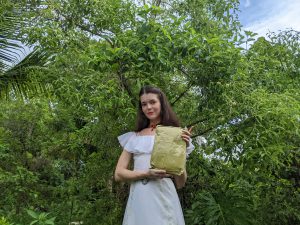
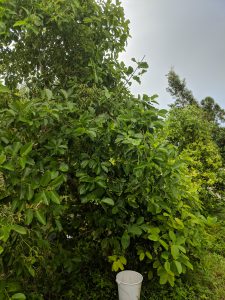
Recent Comments